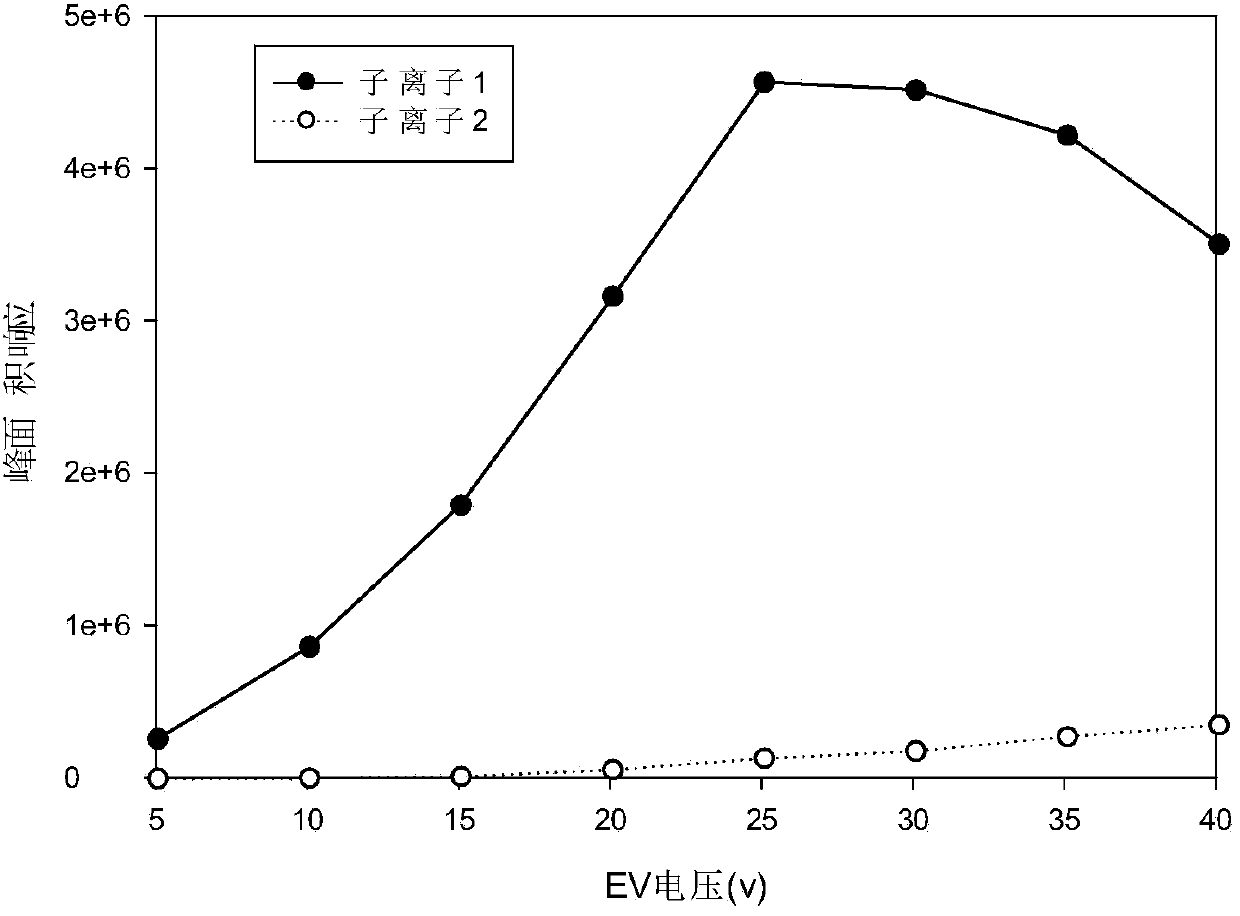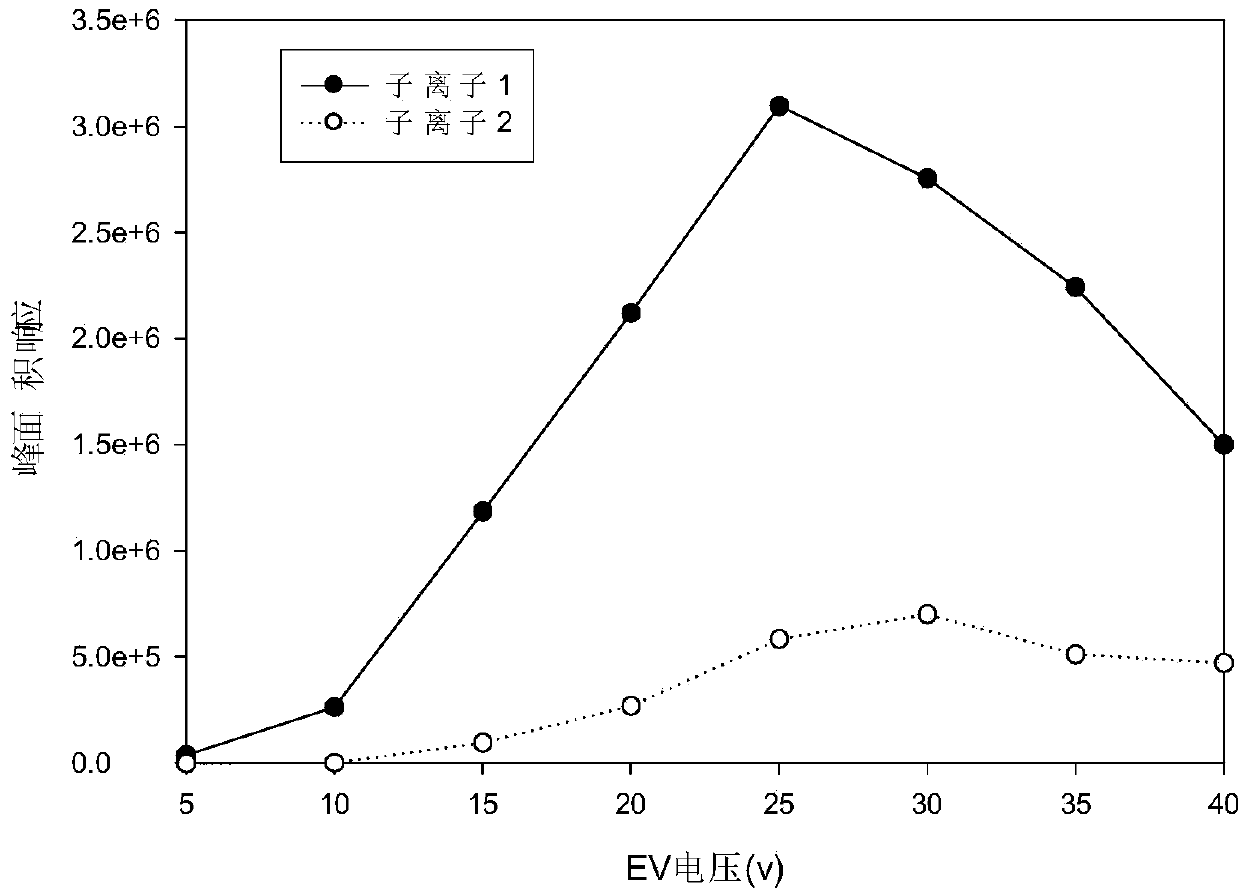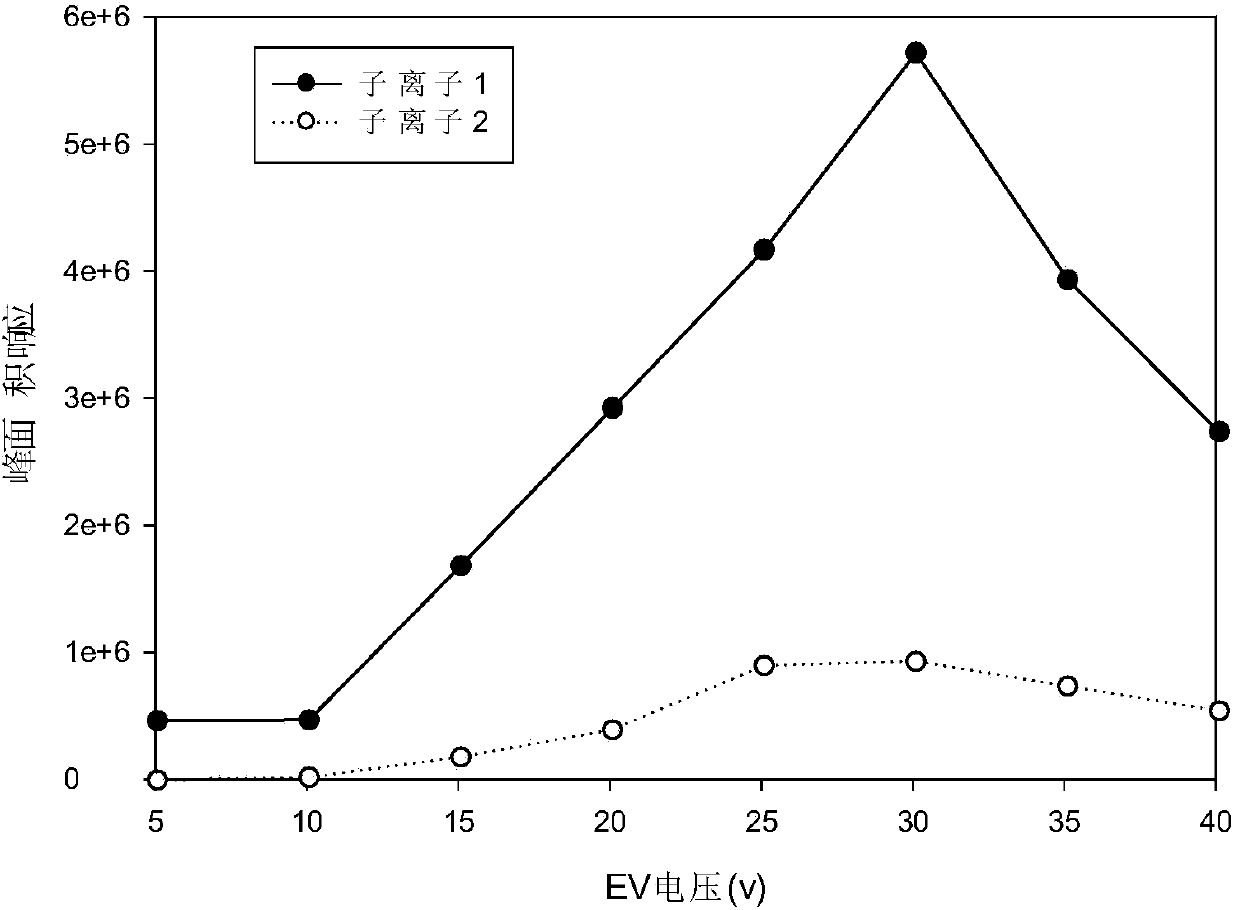Method for quantitatively detecting six kinds of nitrobenzene compounds in fine atmospheric particles PM2.5
A technology for quantitative detection of nitrobenzene, applied in measuring devices, instruments, scientific instruments, etc., can solve the problems of complex pre-treatment purification steps, easy false positives, background matrix interference, etc., to achieve fast and efficient collection and save analysis Cost, effect of fast extraction
- Summary
- Abstract
- Description
- Claims
- Application Information
AI Technical Summary
Problems solved by technology
Method used
Image
Examples
Embodiment 1
[0043] (A) target compound selects nitrobenzene compound;
[0044] (B) Sample collection: Use glass fiber filter membrane or quartz fiber filter membrane as sampling enrichment filter membrane, use air sampler with particle size segmentation to collect atmospheric particulate matter samples, and the sampling flow rate is 0.8-1.2m 3 / min, the collection time does not exceed 12h, and the collection air volume is 576~792m 3 ;
[0045] (C) Sample extraction: After cutting the filter membrane for collecting particulate matter samples, use the extraction solvent to continuously extract with a Soxhlet fat extractor. The extraction time is 12 hours. The extraction solvent is n-hexane and acetone in a volume ratio of 1:1 mixed solution;
[0046] (D) Concentration of the sample: Concentrate the extract after the sample extraction to 1 mL, blow it with nitrogen until it is nearly dry, and then use isooctane to make up the volume, and store the sample to be tested in a dark environment ...
Embodiment 2
[0052] (A) The target compound selects the o-dinitrobenzene compound, and the preparation concentration is 6 kinds of nitrobenzene standard substance solutions of 1000ug / mL, such as figure 2 shown in;
[0053] (B) Sample collection: Use glass fiber filter membrane or quartz fiber filter membrane as sampling enrichment filter membrane, use air sampler with particle size segmentation to collect atmospheric particulate matter samples, and the sampling flow rate is 0.8m 3 / min, the collection time does not exceed 12h, and the collection air volume is 576m 3 ;
[0054] (C) Sample extraction: After cutting the filter membrane for collecting particulate matter samples, use the extraction solvent to continuously extract with a Soxhlet fat extractor. The extraction time is 8 hours. The extraction solvent is n-hexane and acetone in a volume ratio of 1:1 mixed solution;
[0055] (D) Sample concentration: Concentrate the extract obtained after extraction to about 1mL, blow it with nit...
Embodiment 3
[0063] (A) target compound selects m-dinitrobenzene compound;
[0064] (B) Sample collection: Use glass fiber filter membrane or quartz fiber filter membrane as sampling enrichment filter membrane, use air sampler with particle size segmentation to collect atmospheric particulate matter samples, and the sampling flow rate is 1.2m 3 / min, the collection time does not exceed 24h, and the collected air volume is 792m 3 ;
[0065] (C) Sample extraction: After cutting the filter membrane for collecting particulate samples, use the extraction solvent to continuously extract with a Soxhlet fat extractor. The extraction time is 24 hours. The extraction solvent is n-hexane and dichloromethane in a volume ratio of 1 : 1 mixed solution;
[0066] (D) Sample concentration: Concentrate the extract obtained after extraction to about 0.5mL, blow it to near dryness with nitrogen, and then use isooctane to make up the volume, and store the sample to be tested in a dark environment at -20°C; ...
PUM
 Login to View More
Login to View More Abstract
Description
Claims
Application Information
 Login to View More
Login to View More - R&D
- Intellectual Property
- Life Sciences
- Materials
- Tech Scout
- Unparalleled Data Quality
- Higher Quality Content
- 60% Fewer Hallucinations
Browse by: Latest US Patents, China's latest patents, Technical Efficacy Thesaurus, Application Domain, Technology Topic, Popular Technical Reports.
© 2025 PatSnap. All rights reserved.Legal|Privacy policy|Modern Slavery Act Transparency Statement|Sitemap|About US| Contact US: help@patsnap.com



